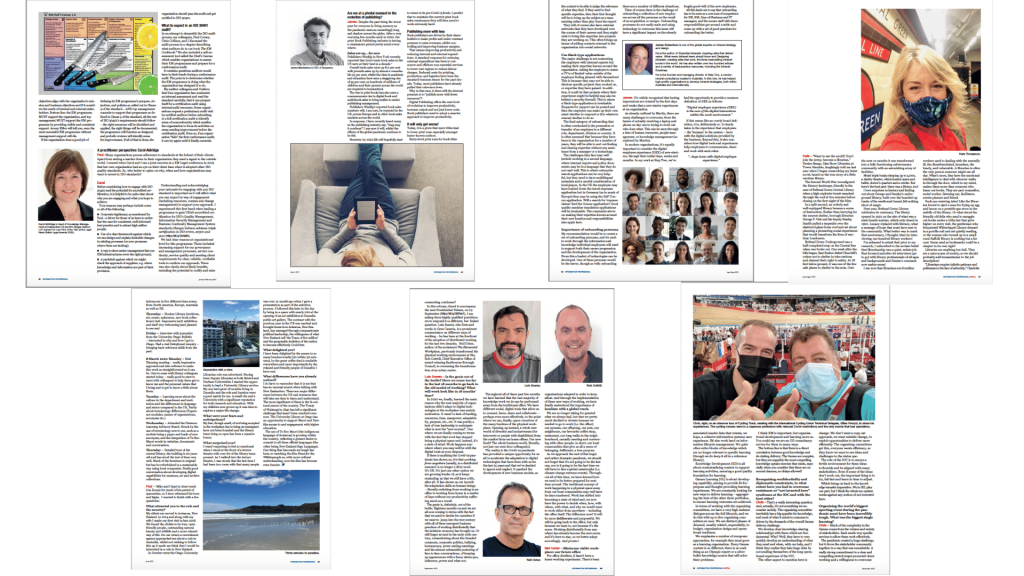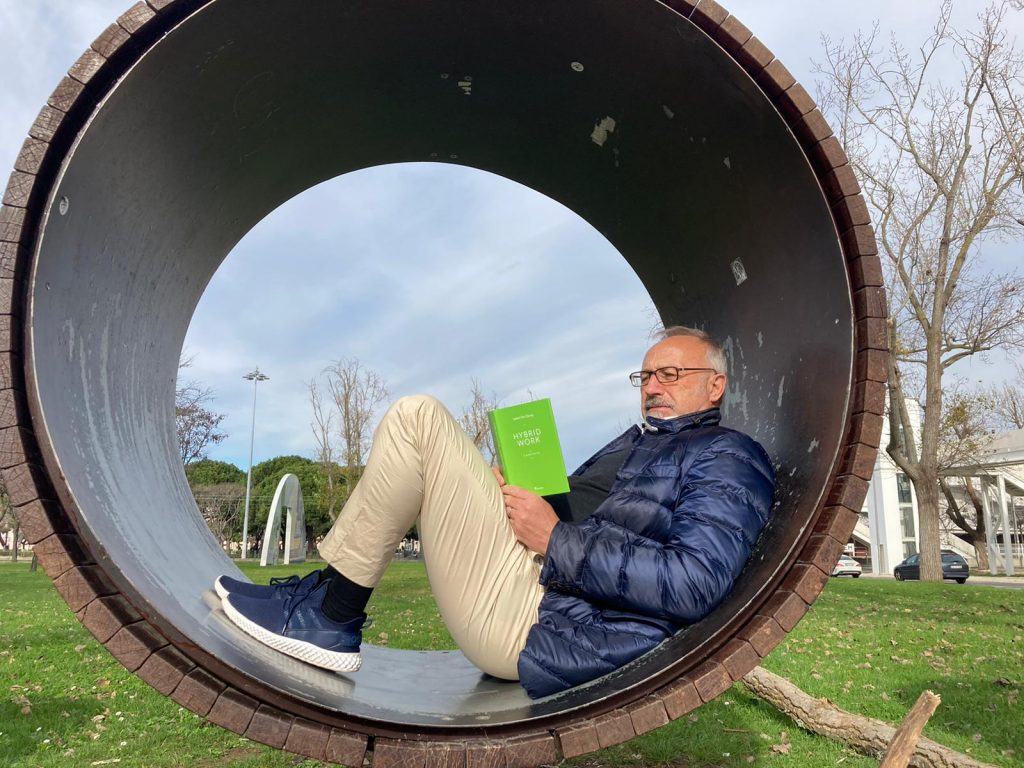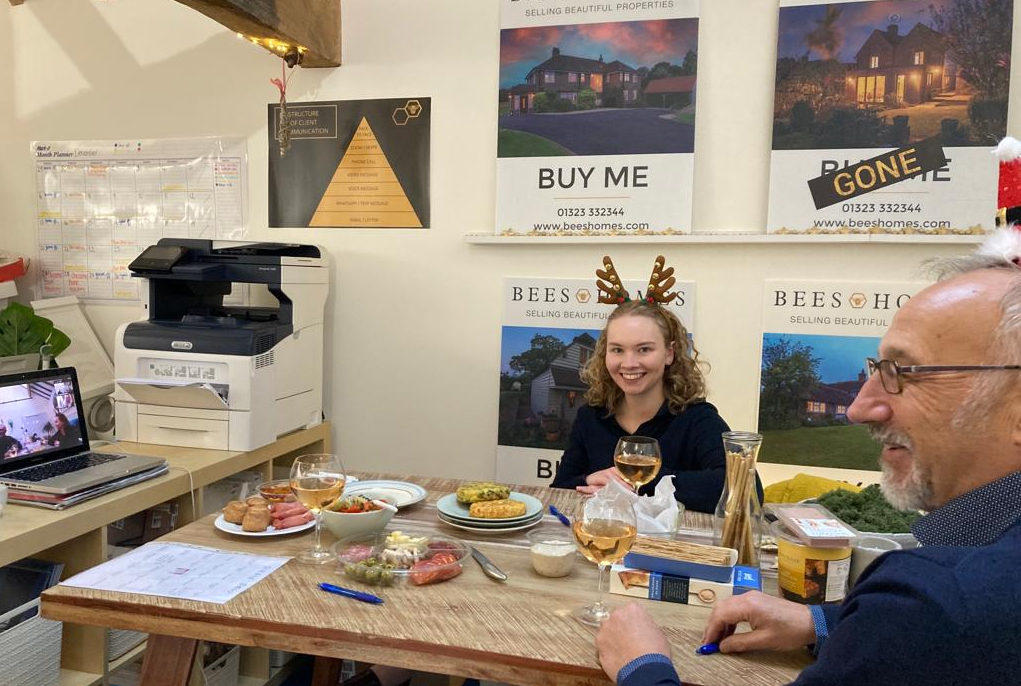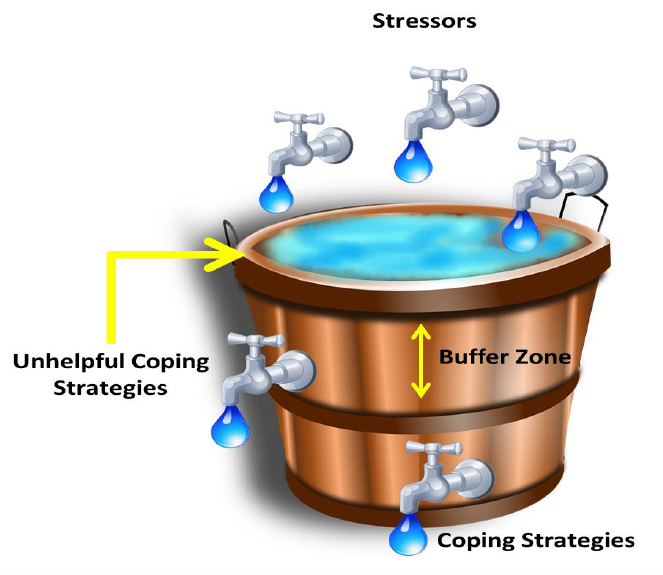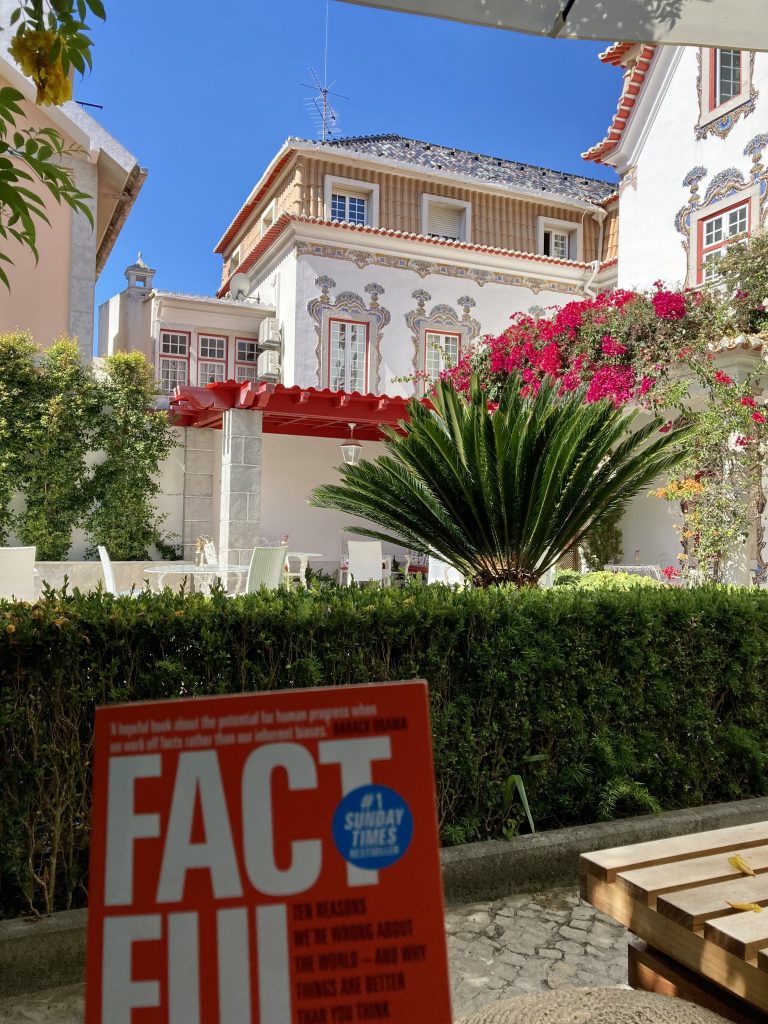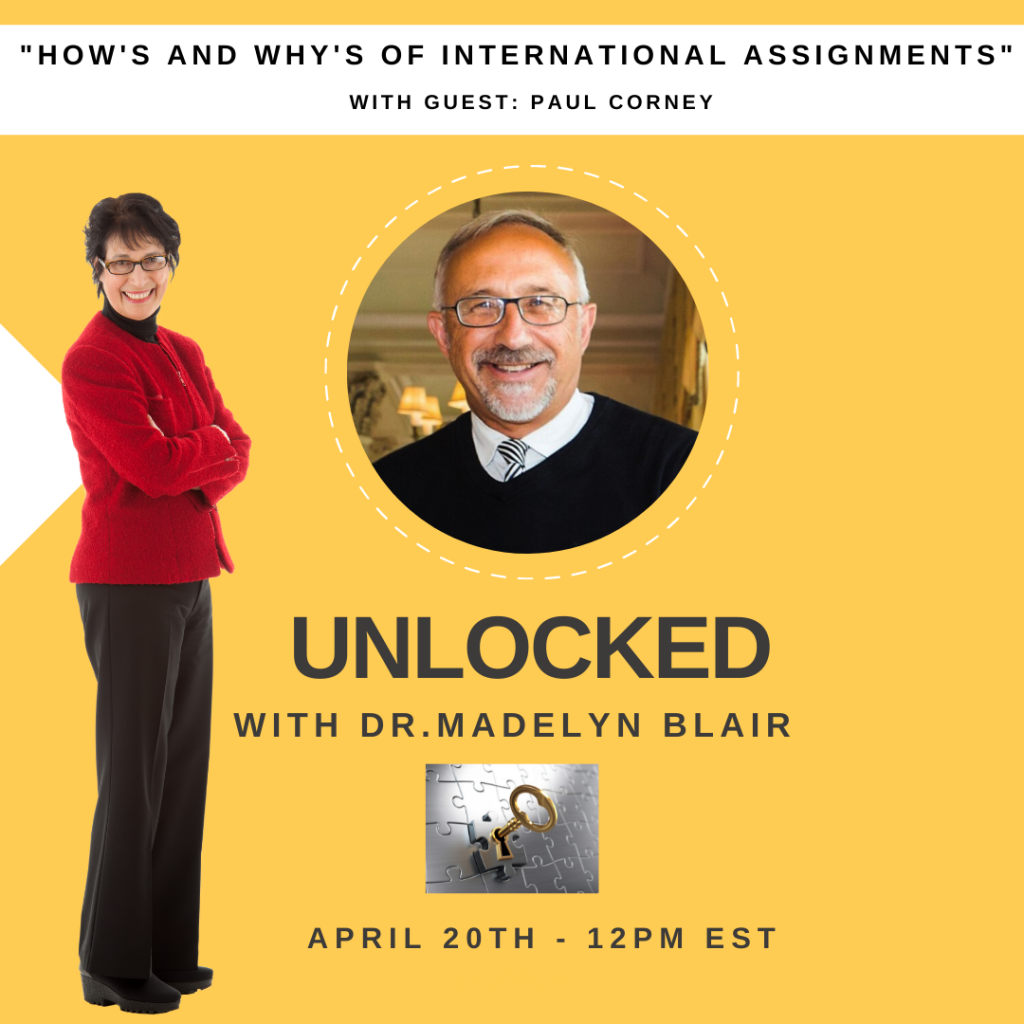
A few weeks back, Dr Madelyn Blair, a friend of many years standing, approached me to ask if I’d participate in one of her weekly tv slots. She left the topic up to me and, with the world emerging from the pandemic and international business starting to resume, I thought I’d share some of my experiences of working internationally.
Here’s a few of the thoughts I covered:
Looking back & looking forward
I am lucky; I’ve worked across five continents and experienced many different cultures over the last 40 years. I’ve been shot at in Ireland, detained in Sudan, been part of an aid convoy in the Philippines after Typhoon Ondoy, slept in a tin shack in Darfur, shared a room with a desert rat while watching oil fields burning in Saudi Arabia in the aftermath of Desert Storm and landed in Barbados after the island’s only hurricane.
When I reflect on a few snippets from a lifetime of conducting international assignments it’s
perhaps unsurprising that my daughter once said “Dad are you really a spy?”.
As I’ve visited/worked in: China, Colombia, Cuba, Iran, Russia and Sudan and the fact that I have two passports it’s surprising I rarely attract the interest of immigration officers. Over the next couple of paragraphs I will try and explain why I think that is and share a few stories about conducting international Knowledge & Information assignments in an ever shrinking and connected world.
I’ve made 6 visits to Iran as part of an assignment to help develop a Knowledge Management Strategy and oversee the implementation of a set of pilots. All the preconceptions I had were wrong as I discovered on March 21st when Iranians celebrate their new year, Norooz, based on the seasons rather than the Islamic calendar.
Getting organizations to embraceKnowledge Management (and become Knowledge Driven rather than merely Knowledge Enabled) requires a deep understanding of the way they work and the context in which they work. The more challenging the environment the more some of the techniques I describe below come into sharp focus.
We practice what we preach and learn before, during and after and make sure those learning’s are fed back into the methodology we use.
Winning the business
We’ve all had ‘we’d like to invite you to tender for’ requests from organizations we’ve never met. As you become more visible and published so these increase. As a rule unless you can trace a direct link to someone you know or somewhere you’ve been then you are being used as padding for a tender process. Be warned. It takes a considerable effort to respond to tender requests especially when there are procurement specialists intermediating.
I learned this in my banking career from a Canadian client in the mining industry who set up an informal cartel in order to meet overseas government tender requirements for at least 3 bids.
Looking back over the major (£250k+) assignments I’ve won and led, in all cases they came as a result of a referral, a presentation or an enquiry stimulated by targeted marketing activity.
I use this criteria for deciding whether to submit a proposal: what new knowledge will be learnt as well as will it be profitable? To that I add, is it something I really want to do, will it enhance our brand, will it make a difference to the prospective client and will it be challenging?
Negotiating the ‘deal’
Having ‘teed up’ an opportunity, the next (big) challenge is how to tie down a mutually agreeable scope of work and a payment schedule that reflects the effort. Here’s where the
fun starts and I try to find out how strategically important the work is as this can influence when / if you get paid!
Big international organizations have defined processes (and payment terms) that often make it difficult for SME’s to work with them. Cash flow is king so be prepared for the potential impact on your business of a delay.
An African friend of mine signed up for a consulting engagement with one of Africa’s major organizations. It looked great and met all of the criteria I outlined above. Payment was triggered by receipt and acceptance of a set of reports and recommendations. Now 9 months later he is still waiting for formal approval for his reports. His mistake? He had no milestone payment and no upfront mobilization fee. Next time he might insist on a payment for delivery with balance on acceptance.
Travelling and staying
Another big consideration is travel. Your safety is important, as is your health. Before I decide on whether to go or not to a country I check out what and whom I know who might help – I conduct my own ‘Peer Assist’ – and visit the members’ library at Chatham House.
Many of the countries I visit require visas and sponsors – that process needs to be
built in to your budget and timetable.
Remember you are probably going to be more expensive than a local competitor and unlikely to be able to charge for travel time so do the planning.
Choose your carrier wisely – it’s how they treat you, how they respond when things go wrong and how quickly you get there that matters not the air miles.
My travel checklist works like this:
- What’s the quickest route on the safest carrier (in my case that means leaving from Gatwick and transshipping if necessary)?
- If over 7 hours, can I break the journey?
- What’s the most economical way of getting there in comfort?
- Does the airline have facilities to work while in the air?
So I have a working knowledge of schedules and use SeatGuru.com to check out the best seats with the most legroom on the plane.
Accommodation can make or break an assignment! A client will often give you an allowance or have preferential rates. Expensive doesn’t always mean good; proximity to your client is vital as is the ability to work in your room.
For Darfur I had to undergo UN security training. It taught me a number of things I use today when asking for a room:
- Above tree line and below floor 7
- Preferably not facing the street
- Proximity to fire stairs.
Working & communicating
In an FT Article, A guide to (mis) communication Gillian Tett draws on ‘Mind the Linguistic Gap – Anglo-Dutch Translation Guide’, to illustrate how easy it is for people from developed nations let alone developing ones to have major communication difficulties. The guide lists phrases that are commonly – and completely – misunderstood when English and Dutch people talk to each other.
So when the English say, ‘please think about that a bit more’ we actually mean ‘that’s a bad idea’ whereas the Dutch (and many others) would assume we mean, ‘that’s a good idea, keep developing it’.
Gillian goes on to look at The Culture Map by Erin Meyer which notes that human speech
varies depending on whether there is a “high” or “low” level of assumed shared cultural context. This affects vocabularies: the English use more words whereas North Europeans (and Americans) tend to be more forthright.
Why is this relevant? If you don’t adapt your style and (in my case) speak slower, write more succinctly and with less jargon, there is huge potential for miscommunication.
Here’s one vivid illustration of the need to adapt styles and approach.
Many years ago I ran the energy portfolio for a bank. It involved frequent travel and meetings with clients from different backgrounds and cultures. I was in a meeting with the Deputy Minister of Petroleum and it was fully 15 minutes before we got around to discussing the issue to hand. He led the conversation, about the investment climate, the property market and the oil market and then when he was ready (body language changed) we got down to business.
That same day I met the US CEO of a major oil corporation. He opened with ‘you got 15 minutes, what have you got to show me?’ A rapid change of pace that reflected different contexts.
Importance of set up
If the way we speak, write and hold ourselves is important so are the technological underpinnings. Consider this: in many organization the jump drive (memory stick) is
banned. There is a limit on email size (try sending a video to a client), browser activity is monitored and restricted and guest access behind their firewall requires countless sign
off and takes days!
Before setting off on your mission, ask the uncomfortable, check whether you need a Mac adapter to show a presentation, are plug sockets receptive to your adapter? I’ve arrived at the HQ of a Swiss organization and discovered that the only way to access their power sockets was with a special plug.
The other key issue is to develop an advance view (hypothesis) of the organization and its culture. Is it a ‘red line’ organization where obsessive attention to detail suffocates innovation and creativity? Or one that is so loose nothing happens.
Agreeing a weekly plan is a great way to surface this as is developing specific agenda for each session.
And we all take things for granted, I once arrived at a ridiculously expensive hotel in Khartoum to be greeted by a sign that read: ‘No credit cards in Sudan’. Thank goodness we had a friend with a local account and a suitcase full of cash!
Listening ears and noticing eyes
How you are received on arrival is usually a good indicator of how important your visit is. I make it an objective to see the President (or similar ranking officer) of an organization during my stay even if to say hello, it is courteous as well as tactically smart.
I also try and get a view of the meeting areas and informal spaces early in a visit. And where the water cooler and coffee stations are located to see how people interact and what they talk about.
I also find it pays to listen more than talk especially in the early parts of an assignment, as someone once said ‘you have two ears and one mouth and should use them in that
proportion’.
Friendly ‘fire’
Assuming you are by now super observant and minding your P’s & Q’s, the next big challenge facing you is how to work with your immediate stakeholder group.
You need to establish separate sounding boards not just your project sponsor.
Wherever possible look to work with a cross functional/silos steering group to whom you can turn to for advice and critical friendly fire.
Show respect to everyone. While our organizational structures tend to reflect importance it is not always the same elsewhere and the power brokers / influencers who can help you to make things happen or identify blockers who can be opaque to the uninitiated.
When yes means no and timing is flexible
Working with global businesses I’ve come to realize a one size fits all ‘approach will fail.
I once had ‘ownership’ of the integration plan for an acquisitive business during the dotcom era.
With offices in UK, Germany, Netherlands and USA (where the CEO was located) it became pretty apparent that incentives in the US didn’t play well in Europe (and vice versa).
“Employee of the Month’ is probably universally accepted as a way of incentivizing and measuring performance. I shall always remember the response of a Dutch winner who when told that her prize was lunch with the CEO said ‘And that’s worth winning?’
A serious point: in many cultures, yes means no or at best maybe and you need to know which is which.
I would turn up for an agreed appointment only to be told by the PA or Secretary: ‘Mr … is just coming’ ‘Mr… is on a call’ or ‘Mr… has been called to see …’
All are bad news. 15 minutes is about the maximum time to wait. I’d leave a card and suggest returning in the future or ask for an area to work in while I waited.
Timekeeping is often the biggest challenge on an international assignment. Rare are the occasions when meetings start and finish to time irrespective of the venue.
“Africa time’ is often jokingly used to describe that continent’s loose association with timekeeping.
But it is not only there! If you have a number of meetings in a day remember it can take considerable time to navigate from one office to another and you need time to catch your thoughts and make field notes.
Handling left field moments
Even the best of us can inadvertently put a metaphorical foot wrong.
Our actions are magnified when we are dealing in a different environment and out of our comfort zones.
I narrowly averted a faux pas in Iran. A copy of the Koran had been placed on the table I was sitting at in full view of the audience I was addressing. A technician came to wire me up and put my coffee cup and working papers onto another desk while he did so. He gave me back the papers and cup as he left and I was a whisker away from putting the cup on the book as one might in the UK.
Another issue that often comes up is the formal greeting. I now let the person I am meeting make the first move and respond accordingly. I’ve been slapped, kissed on both cheeks, put my hand on my heart, bowed, even touched noses (a strange experience) and had my hand crushed.
Rituals around food and entertaining can be the most challenging to deal with when working cross border. I was having dinner in Abu Dhabi with a Saudi professor who told me a wonderful tale about an early experience when he was just married and was at language school in upstate New York with his wife.
As is customary they were invited to dinner but did not take a gift as in his culture to do so would be an insult. His hostess was not impressed and it took some time for him to understand the reason.
Perhaps my most surreal experience occurred in Sudan when I was invited to visit a major company for a discussion only to find on arrival there were 200 people assembled to hear my presentation on ‘Knowledge Management in the Energy Industry’.
After recovering from the shock I conducted a 45-minute Q&A session prompted by an opening, ‘What keeps you awake at night?’
Reporting and getting paid
I’ve had mainly positive experiences dealing with international clients and getting paid.
Typically the more ‘developed’ the country the worse organizations (especially governments) are at making payment if you are an SME.
However I’ve found people will try and find a way to pay you if they feel you’ve done a good job. Your challenge is to manage that perception!
In the early contract negotiations it’s important to have an advance or mobilization payment built into the contact. The assignment scope should cater for that and it should be clear the work that is being done in order to trigger that.
Reporting steps should be specified and wherever possible adopt a Value Frame approach wherein each milestone is evaluated jointly to assess the value and impact you’ve provided..
I discovered one of the best ways of setting expectations with clients is to present an early draft to test the format and language. `
The most important technique is a visualization of the service you are providing which is updated frequently. It is so much easier to talk to people in their 2nd language with an image or roadmap as a backdrop.

